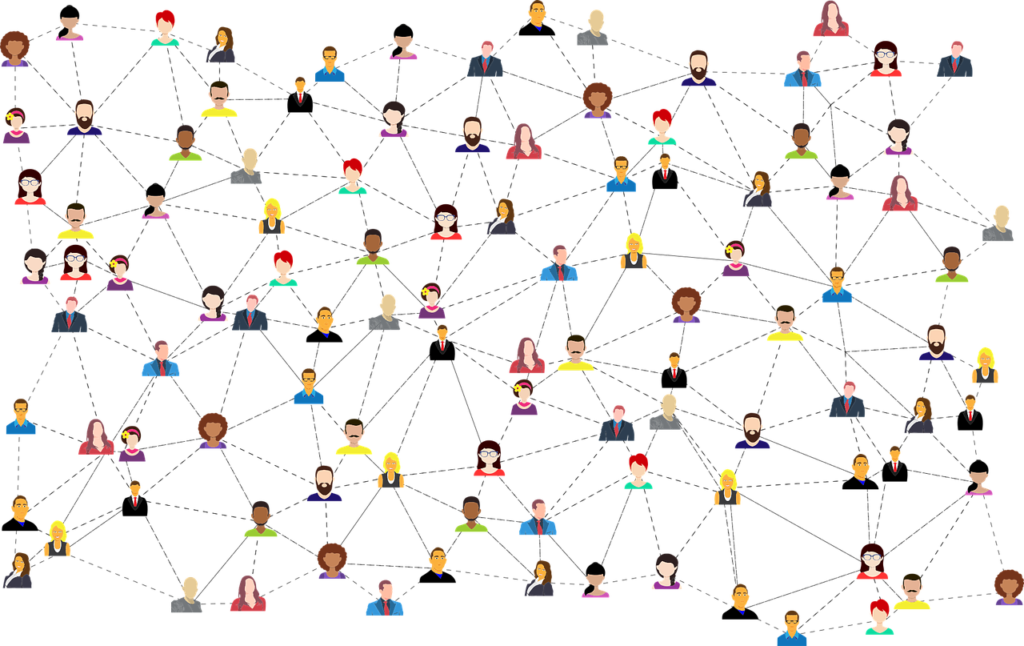The Emerging Paradigm: Where Human Ingenuity Meets Technological Leap
Imagine standing at the cusp of a new era – a time where unprecedented technological advancements collide with the boundless potential of human creativity. The business landscape of 2025 isn’t merely about survival; it’s a call for radical reinvention. Adaptability isn’t just an advantage; it’s the very currency of success. This isn’t a future to be passively observed, but a landscape to be actively shaped.

Why This Guide is Your Strategic Roadmap
In a world changing at warp speed, understanding the subtle shifts in the business environment is no longer a luxury—it’s essential for survival. This guide acts as your compass, cutting through the complexities of emerging trends to illuminate opportunities hidden within apparent challenges. It’s a practical resource designed to empower you to not just react to change, but to lead it.
1. Hyper-Personalized Digital Marketing: Beyond Algorithms, It’s About Connection
Digital marketing in 2025 has evolved beyond mere targeting. It’s no longer about algorithms; it’s about genuine understanding, forging meaningful connections, and creating hyper-personalized experiences that resonate deeply with individuals. This isn’t about bombarding customers with ads; it’s about building relationships.
Revolutionary Strategies:
- AI-powered Emotional Intelligence Marketing: Leveraging AI to understand and respond to the emotional cues in customer interactions.
- Predictive Customer Journey Mapping: Anticipating customer needs and tailoring experiences to seamlessly guide them towards desired outcomes.
- Micro-Moment Marketing: Delivering precisely targeted messages at the exact moment a customer is most receptive.
- Ethical Data Utilization: Prioritizing transparency and responsible data handling to build trust and maintain customer privacy.
Success Story: Spotify’s personalized playlists aren’t just algorithmic magic; they’re a testament to the power of understanding individual preferences and delivering curated experiences that feel uniquely tailored.
2. Purpose-Driven Entrepreneurship: Profit with a Purpose
Entrepreneurship in 2025 isn’t just about profit; it’s about making a meaningful impact. The most successful ventures will be those that seamlessly integrate profitability with a strong sense of social and environmental responsibility. It’s about building businesses that are not only financially viable, but also contribute to a better world.
Transformative Entrepreneurial Principles:
- Tackling Systemic Global Challenges: Addressing pressing issues such as climate change, inequality, and healthcare access through innovative business models.
- Building Regenerative Business Models: Creating businesses that actively restore and renew natural resources and communities.
- Prioritizing Social and Environmental Impact: Measuring success not just by profits, but also by positive social and environmental outcomes.
- Transparent, Purpose-Aligned Governance: Ensuring ethical and responsible leadership and decision-making.
3. Decentralized E-commerce Ecosystems: The Rise of Collaborative Commerce
E-commerce is transcending traditional platform models. Blockchain technology and collaborative networks are creating interconnected, decentralized ecosystems that empower individuals and foster trust. This shift empowers consumers and fosters greater transparency throughout the supply chain.
Next-Generation Commerce Strategies:
- Blockchain-powered Trust Mechanisms: Leveraging blockchain to ensure secure and transparent transactions.
- Peer-to-Peer Marketplace Models: Connecting buyers and sellers directly, cutting out intermediaries and increasing efficiency.
- Tokenized Economic Participation: Utilizing tokens to incentivize participation and reward contributions within the ecosystem.
- Sustainable Supply Chain Transparency: Utilizing blockchain to track products from origin to consumer, promoting ethical sourcing and sustainable practices.

4. Augmented Intelligence: Human-Machine Synergy – A Partnership, Not a Replacement
Artificial intelligence in 2025 isn’t about robots replacing humans; it’s about creating a powerful synergy. AI becomes a collaborative partner, amplifying human potential and enabling us to achieve far more than we could alone. This isn’t about automation; it’s about augmentation.
Advanced AI Integration Approaches:
- Emotionally Intelligent Algorithms: AI that understands and responds to human emotions, fostering more natural and empathetic interactions.
- Contextual Learning Systems: AI that adapts and learns from its environment, constantly improving its performance and insights.
- Ethical AI Governance Frameworks: Implementing robust ethical guidelines to ensure responsible AI development and deployment.
- Human-Centric Design Principles: Prioritizing human needs and experiences in the design and implementation of AI systems.
Call to Action: Don’t fear AI; embrace it as a tool to enhance your capabilities and create more innovative solutions.
5. Holistic Wealth Creation Strategies: Redefining Prosperity for a Thriving World
Wealth creation in 2025 is no longer solely about financial gain; it’s a multifaceted concept encompassing financial security, personal well-being, and positive societal impact. True prosperity requires a holistic approach, recognizing the interconnectedness of these elements.
Comprehensive Wealth Blueprints:
- Regenerative Investment Models: Investing in businesses and projects that contribute to environmental and social regeneration.
- Digital Asset Diversification: Strategic allocation of assets across traditional and digital markets.
- Skill-Based Value Generation: Focusing on developing in-demand skills and leveraging them to create economic value.
- Holistic Financial Wellness: Prioritizing financial literacy, responsible spending habits, and long-term financial planning.
Call to Action: Reimagine your approach to wealth creation, focusing on building a secure financial future while contributing to a more sustainable and equitable world.
6. Distributed Work Ecosystems: The Future of Work is Fluid and Global
The traditional office is becoming obsolete. Work in 2025 is a dynamic, global ecosystem of collaboration and creativity, unbound by geographical limitations. This shift requires adaptability and a focus on building strong, connected teams.
Transformative Work Strategies:
- Asynchronous Collaboration Platforms: Utilizing tools that facilitate communication and collaboration across time zones and schedules.
- Global Talent Networks: Accessing a diverse pool of talent from around the world.
- Adaptive Work-Life Integration: Creating flexible work arrangements that support employee well-being and productivity.
- Psychological Well-being Frameworks: Prioritizing mental health and providing resources to support employee well-being.
Call to Action: Embrace the flexibility of distributed work, fostering a culture of trust, autonomy, and strong communication within your teams.

7. Regenerative Sustainability: Sustainability as a Business Advantage
Sustainability is no longer a mere corporate responsibility; it’s a strategic imperative and a key driver of innovation. Businesses that prioritize sustainability are not only contributing to a healthier planet but also gaining a significant competitive advantage.
Regenerative Business Principles:
- Circular Economy Design: Creating products and processes that minimize waste and maximize resource utilization.
- Carbon-Negative Technologies: Developing and implementing technologies that remove more carbon dioxide from the atmosphere than they emit.
- Biodiversity-Inclusive Strategies: Protecting and enhancing biodiversity through business practices.
- Stakeholder Ecosystem Thinking: Considering the needs and interests of all stakeholders, including employees, customers, suppliers, and the wider community.
Call to Action: Integrate sustainability into the core of your business strategy, creating a positive environmental and social impact while enhancing your competitive edge.
8. Quantum Cybersecurity: Proactive Defense in a Hyperconnected World
Cybersecurity in 2025 demands a proactive, predictive, and adaptive approach. The rise of quantum computing requires a shift towards advanced security measures capable of withstanding increasingly sophisticated threats.
Advanced Security Paradigms:
- Quantum Encryption Technologies: Utilizing quantum-resistant encryption to safeguard sensitive data.
- Predictive Threat Intelligence: Leveraging AI and machine learning to anticipate and prevent cyberattacks.
- Zero-Trust Architectural Frameworks: Implementing a security model that assumes no implicit trust, verifying every access request.
- Continuous Risk Adaptation: Continuously monitoring and adapting security measures to address emerging threats.
Call to Action: Invest in robust cybersecurity measures, proactively protecting your data and systems from increasingly sophisticated threats.
9. Micro-Entrepreneurship and Fluid Economies: The Democratization of Opportunity
The traditional career path is evolving. In 2025, individuals are empowered to create their own economic opportunities through micro-entrepreneurship and flexible work arrangements. This shift democratizes economic participation and fosters greater autonomy.
Micro-Entrepreneurship Strategies:
- Platform-Independent Skill Monetization: Leveraging online platforms to offer services and expertise.
- Personal Brand as an Economic Asset: Building a strong personal brand to attract clients and customers.
- Modular Skill Development: Continuously acquiring and updating skills to remain relevant and competitive.
- Global Collaboration Networks: Connecting with individuals and businesses across geographical boundaries.
Call to Action: Embrace the opportunities of the fluid economy, leveraging your skills and talents to create your own economic destiny.
10. Convergence Technologies: The Intersection of Innovation Domains – A New Era of Synergy
Technological innovation in 2025 is characterized by unprecedented convergence across previously distinct fields. The synergy between different technologies creates entirely new possibilities and opportunities.
Emerging Technological Frontiers:
- Quantum Computing Applications: Harnessing the power of quantum computing to solve complex problems and drive innovation across various sectors.
- Biotech-Digital Hybrid Innovations: Integrating biotechnology and digital technologies to create new healthcare solutions and improve human well-being.
- Extended Reality Ecosystems: Leveraging virtual, augmented, and mixed reality to create immersive experiences and transform various industries.
- Neuromorphic Computing: Developing computer systems inspired by the human brain to create more efficient and powerful AI.
Call to Action: Embrace the transformative power of converging technologies, exploring their potential to create groundbreaking innovations and reshape industries.
